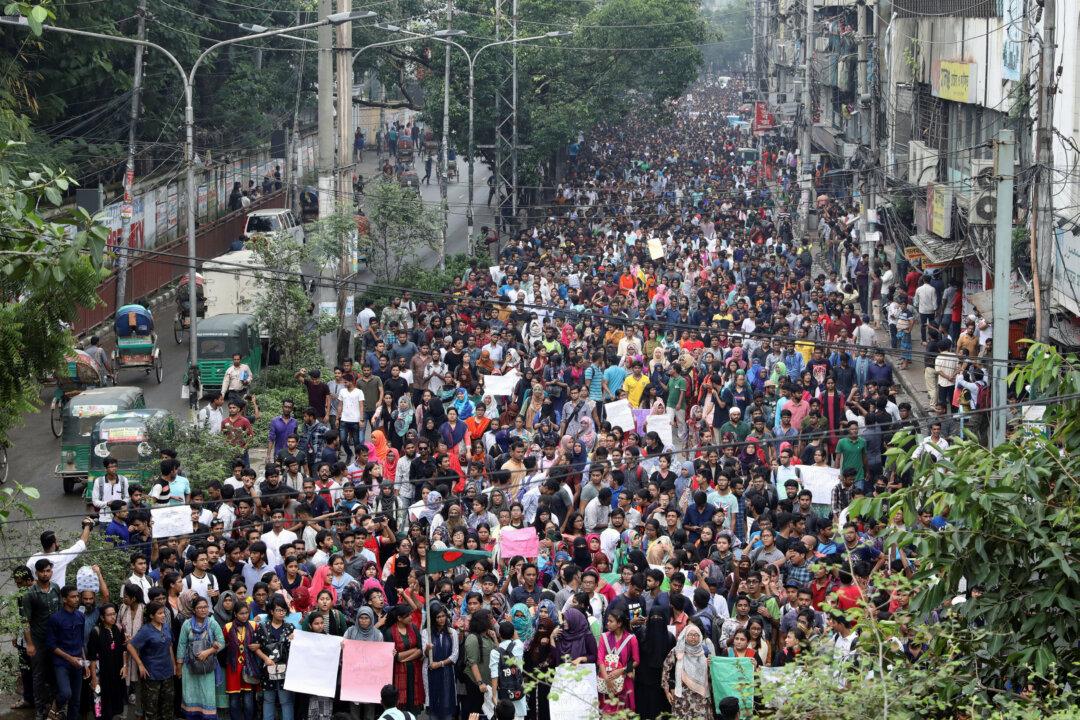DHAKA—Bangladesh’s cabinet on Aug. 6 approved raising the maximum jail time for rash driving deaths to five years from three, the law minister said, as students protested for a ninth day over the deaths of two teenagers killed by a speeding bus in Dhaka.
Prime Minister Sheikh Hasina, who faces an election due by the end of the year, has accused her political rivals of trying to stir up anti-government sentiment using the deaths as a pretext. The opposition has denied involvement.





